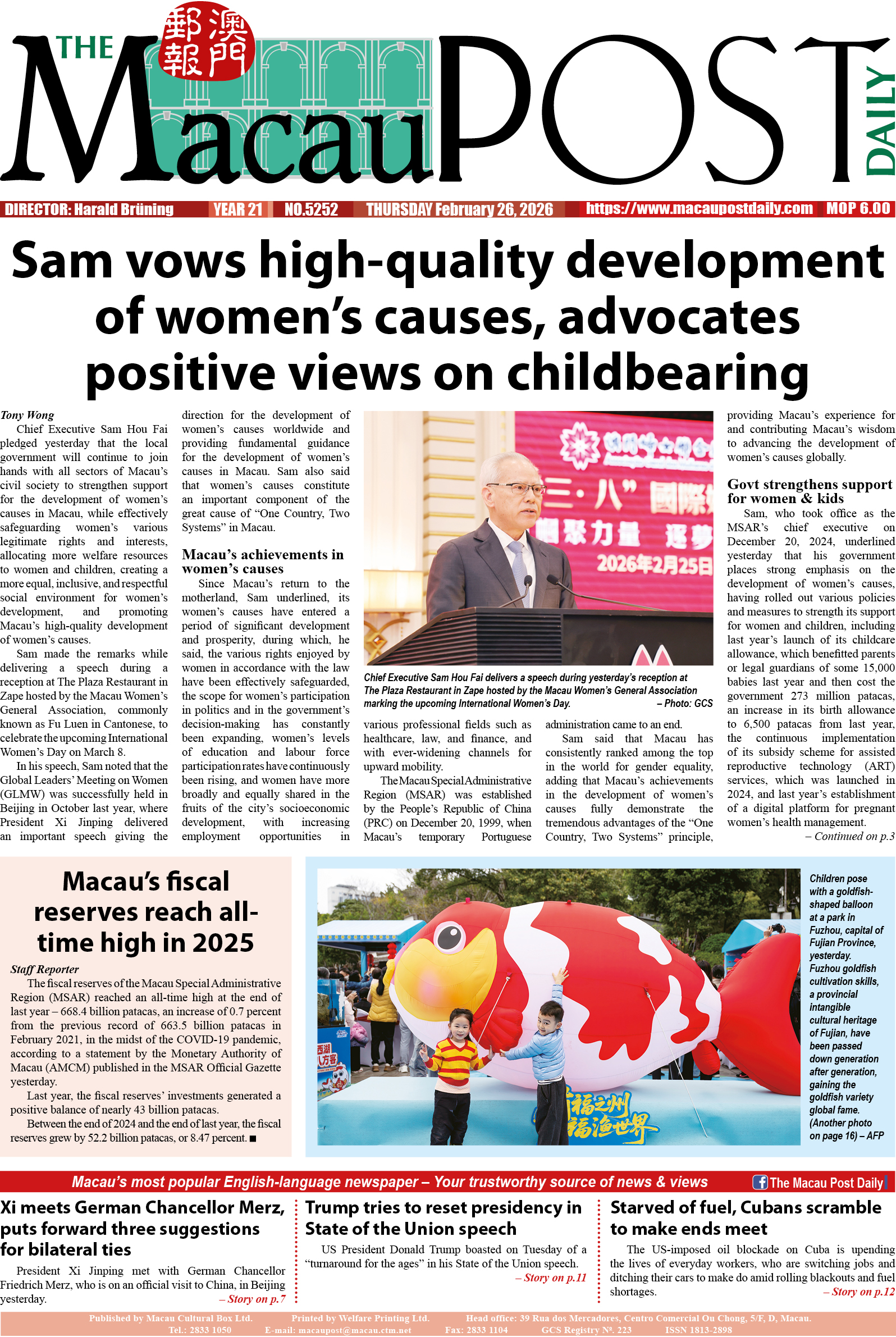Commentary
As economic globalization has transformed the world into a global village, communicable diseases have increasingly become prominent non-traditional security threats for all countries. Therefore, the COVID-19 outbreak is a severe test for not only China but also for the world as a whole.
Under the leadership of the Communist Party of China (CPC) Central Committee with General Secretary Xi Jinping at the core, the Chinese government and people have mobilized resources nationwide in response to the health crisis. China’s efforts have also strengthened the collective work of combating the novel coronavirus outbreak around the world.
As a former vice-minister of foreign affairs, the following are my observations on foreign policy and international cooperation following the epidemic outbreak.
Coping with epidemics part of global governance
To begin with, China has a deep understanding of global governance and the building of a community with a shared future for mankind. The country is an integral part of the global village, where coping with communicable diseases is part and parcel of the global public health system and public health governance.
As a responsible major country, China is aware of the importance of global cooperation when it comes to safeguarding public health. Since the novel coronavirus outbreak, China has adopted an open, transparent, cooperative and responsible approach in fighting the disease. It is working with the World Health Organization and affected countries, and releasing timely information to the international community about the measures it has taken to contain the epidemic.
Leaders from more than 160 countries and international organizations have expressed solidarity with China, and dozens of countries have donated goods to deal with the health emergency. The Chinese government and people appreciate their generosity, especially because they have boosted China’s confidence that it will win the battle against the virus soon.Global contribution to grassroots diplomacy
In the two months since the outbreak, President Xi Jinping has talked with many heads of state and government, and has been moved by their support. Apart from governments, members of the general public have gone out of their way to donate medical supplies to the Chinese people. The business community, media groups, NGOs and individuals have also contributed to grassroots diplomacy.
While politics and economics continue to dominate the process globally, a wide variety of challenges-for example, in the fields of public health, environmental security, natural disasters and cybersecurity-have become more acute, as the novel coronavirus epidemic is yet to be fully controlled, partly because of the interconnectedness of nations.Unlike traditional wars and military conflicts, non-traditional security threats seem to dominate the day-to-day world today. As such, diplomacy needs to reach across different dimensions and sectors to cover all aspects of global governance.
Some major powers not fulfilling duties
The World Health Organization, which is at the heart of global public health governance, is an effective and efficient platform. Yet global governance deficit is increasing, and some major countries are not fulfilling their due responsibility of providing public goods, including in the public health sector.
The COVID-19 epidemic has once again turned global attention on the WHO with the international community recognizing its central role in dealing with global public health emergencies. We strongly support the WHO and respect its decisions on how to cope with the latest emergency.
The 2008 global financial crisis showed that no country is an island.
International cooperation, including fiscal and monetary measures, helped us to tide over the unprecedented economic meltdown.
The COVID-19 outbreak has once again jolted our collective memory. China, on its part, has been cooperating closely with experts around the world to effectively contain the spread of the virus. In the same spirit, China worked with the WHO to provide assistance for African countries hit by the Ebola virus. Among other things, it sent medical teams and medicines to Ebola-hit countries, setting a good example of global cooperation in public health.US has changed dynamics of its ties with China
Cooperation with other major countries and neighbors is important to control an epidemic. The difference in the attitudes of the United States and Japan are revealing. Washington sees China as the US’ “main strategic competitor”. As a result, the dynamics of China-US relations have shifted from competitive but friendly cooperation to a relationship defined mainly by harsh competition.
The US’ response to the COVID-19 epidemic has been two-faced. While businesses, charitable organizations and individuals in the US have made generous donations to China and engaged in other forms of cooperation, many American politicians have continued demanding the “decoupling” of the US and Chinese economies. Among the measures the US administration has rolled out are those that “delist” China as a developing country and extend long-arm jurisdiction on more Chinese companies.
US Secretary of Commerce Wilbur Ross has even claimed that the coronavirus epidemic will help “reshoring” of manufacturing-that is, bring manufacturing units back to the US. And The Wall Street Journal has published articles full of biases and anti-China propaganda.Economic policies will rule in US election year
The presidential election in the US later this year will have a huge impact on both domestic politics and foreign policy of the US. First, many voters want to elect candidates who can protect their wealth, which means economic policies will be front and center this year. Second, since political dynamics will be at the mercy of election politics, they could become more fluid. And third, China-bashing is a standard fixture during a US election year, because both Democrats and Republicans use it as a tactic to rally support and win votes.
This means a combination of the epidemic and election year politics will affect “phase two” of the Sino-US trade talks, meaning progress will depend on what happens in domestic US politics.
Japan, on the other hand, has provided substantial help to China in the fight against the epidemic, including donation of medical supplies, and the Chinese government and people acknowledge Japan’s precious support. The Republic of Korea, Cambodia and other neighboring countries in East and South Asia have shown similar passion and resolve for regional cooperation.
China believes that global governance derives its momentum from regional cooperation, and that international cooperation is grounded in regional cooperation. Strengthened cooperation in trade, culture, public health, tourism and education will add building blocks to the community of East and Southeast Asia, thereby developing a protective buffer to fend off the negative effects of the larger geopolitical tug-of-war.Cooperation only way to contain epidemic
Since the novel coronavirus epidemic respects no borders, cooperation is the only way to contain it. As the world’s major countries, China and the US should cooperate to contain the epidemic, because the opposite will only serve to make things difficult for both sides as well as for the rest of world.
Both countries have learned valuable lessons and have enough experience to share in order to strengthen the global public health system and contain communicable diseases. The US should overcome its geopolitical impulses and “strategic anxiety” over China’s development for the sake of mutual interest, and the two sides should consider setting up a coordinating mechanism for public health and communicable diseases, either under the WHO or as a bilateral interagency cooperation mechanism.
Moreover, they should also consider establishing research programs and intensifying exchanges between hospitals, doctors and researchers from the two countries. And given the possibility of another epidemic outbreak in the future, China and the US should share the responsibility of fighting the current epidemic together, and contribute to public health and safety around the world.
The author is former vice-minister of foreign affairs.
– Courtesy China Daily







